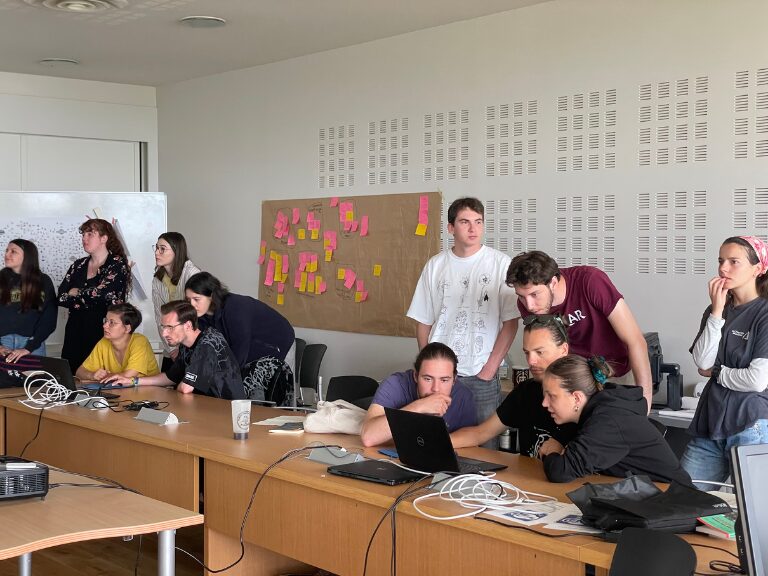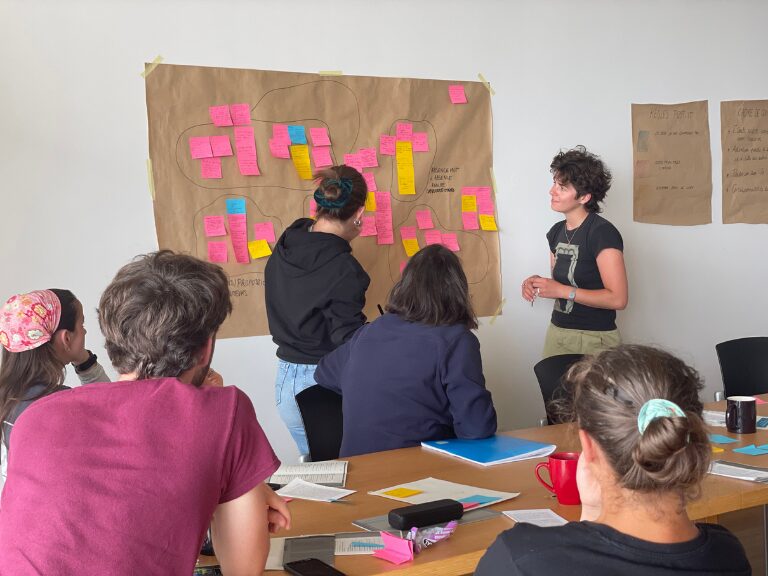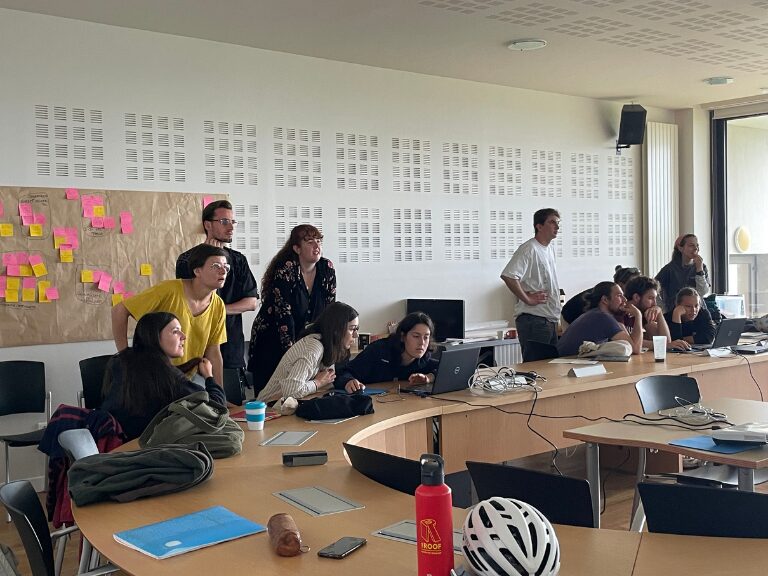écoGITO PIM: Exploring ecological thinking through the technique of collective reading (arpentage)

Political ecology encompasses a wide range of ideas, movements, and thinkers, all connected to diverse struggles and organizations. Some schools of thought seek to reconcile environmental and economic considerations, while others question issues of power and domination in relation to ecology and environmental protection.
From June 23 to 27, 2025, the écoGITO PIM program allowed twelve master’s students to immerse themselves in these reflections, questioning notions of commitment and professional stance, finding resources to think through ongoing transitions, and drawing inspiration as future environmental professionals and engaged citizens.
To take the time to collectively explore the diversity of ecological thought, the students participated in writing workshops, bibliographic research sessions, and collective reading (arpentage) workshops. The principle of arpentage? Each participant reads a different section of a book, then the group gathers to share discoveries and impressions. This technique, originating from popular education movements, enables collective exploration of texts within a limited time. It is a partial and subjective reading, yet it allows a group to quickly become familiar with complex bodies of knowledge.


The week was also marked by meetings with several researchers:
- Edith Gaillard, on ecofeminism
- Hervé Ferrière, on the history of humanity’s relationship with nature
- Isabelle Stengers and Alexis Zimmer, during a conference organized at IUEM as part of the ETHOS lecture series, discussing the book Polluer c’est coloniser, which they co-wrote the preface for.
At the end of this PIM, the students were able to better identify and contextualize a wide range of ecological thought, adopting a critical and cosmopolitan perspective. They gained tools to reflect on their own professional stance as future environmental specialists — questioning their methodologies, field approaches, and positioning.
Finally, they experimented with collective intelligence tools designed to demystify the act of reading and, more broadly, to rethink the relationship between individual and collective knowledge.
Testimony from the students who participated in the PIM:
More information about the ETHOS lecture series
Presentation:
Anaelle Guyomarc’h – Facilitator of Writing Workshops – Life Stories
Supervisors:
Juliette Doux, EGEL master’s student
 Attention, vous utilisez un navigateur peu sûr !
Attention, vous utilisez un navigateur peu sûr !